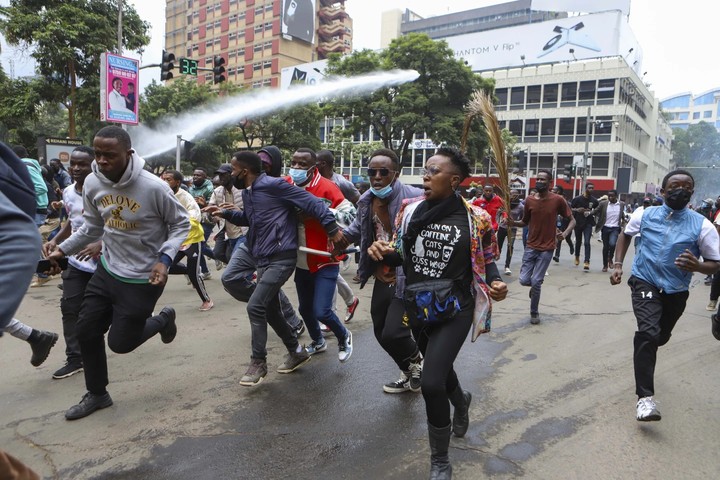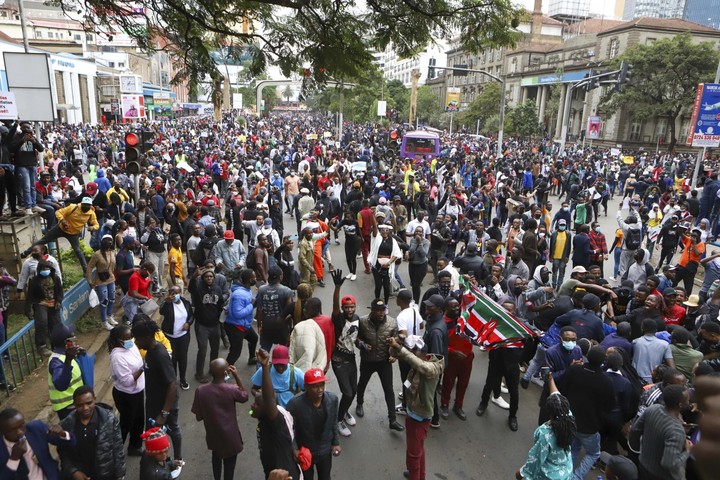Protests erupted across Kenya, with thousands of young people taking to the streets of Nairobi and other cities to voice their opposition to President William Ruto’s new tax proposals, which were announced as part of the annual budget. The demonstrations, led largely by youth, expressed widespread discontent with the administration’s fiscal policies.
The protests engulfed the nation’s capital city of Nairobi as riot police on horseback fired tear gas and water cannons to disperse demonstrators marching towards parliament buildings, where lawmakers were deliberating on the contentious finance bill. The clashes brought the city’s business center to a complete standstill.
Demonstrators, who took to the streets earlier this week, are intensifying their calls for lawmakers to reject the controversial finance bill, which they claim will disproportionately affect salaried workers, business owners, and consumers.
They allege that President Ruto has broken his campaign promise to lower taxes and reduce the cost of living, instead imposing a heavier burden on already struggling Kenyans. The protesters demand a reversal of the proposed tax hikes, citing concerns over the bill’s potential to exacerbate economic hardship and undermine economic growth.


The controversial tax proposals include a 2.75% income tax earmarked for the national medical insurance scheme, as well as increased taxes on essential commodities such as vegetable oil and fuel. These tax hikes will drive up production costs, leading to higher prices for consumers, and potentially increasing the already high cost of living in Kenya.
READ ALSO:
After a meeting between President Ruto and his party’s lawmakers, the government retreated on controversial plans to impose a 16% VAT on bread and an annual tax on vehicles, but protesters remained unyielding, dismissing the concessions as inadequate and demanding a complete overhaul of the budget proposal, refusing to accept anything less than its total rejection.
As President Ruto spoke at a university event in Garissa, protesters gathered outside, their chants and signs expressing discontent with his government.
Meanwhile, in Eldoret, the president’s own hometown, a group of young people took to the streets, holding demonstrations and expressing regrets for having cast their ballots supporting Ruto’s candidacy.
President Ruto acknowledged the constitutional right to peaceful protest, but stressed the importance of government institutions in the decision-making process. “We are a democracy, and those who wish to demonstrate are free to do so. However, it is crucial to recognize that decisions are made by duly elected institutions, not on the streets,” Ruto stated on Wednesday.


2 Comments
Pingback: Despite Staffing Challenges, Parirenyatwa Radiotherapy Unit Restarts Operations - Mbamali
Pingback: Kenya: Military and Police Deployed in Nairobi After Protesters Storm Parliament Building - Mbamali